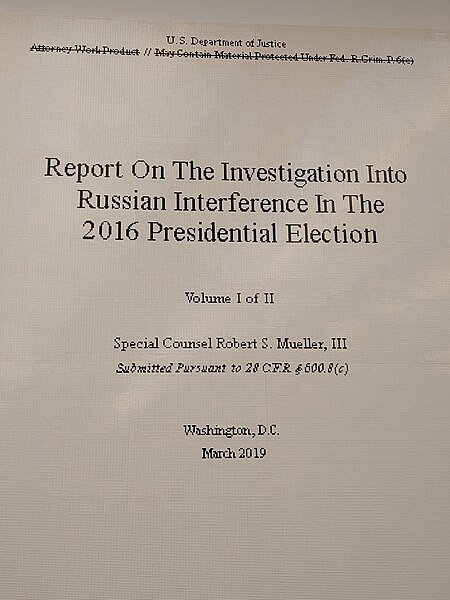Intellectual Activism: From Ivory Towers to Real-World Impact
Forget the stereotype of stuffy professors locked in dusty libraries. Intellectual activism is about using your brainpower for good, loud and clear. It's writers like Chimamanda Ngozi Adichie weaving social justice into captivating stories, artists like Ai Weiwei using art to challenge authority, and journalists like Glenn Greenwald wielding facts like weapons to expose the truth.
So, who are these intellectual activists? The answer: anyone who uses their knowledge to fight for a better world.
Ai Weiwei. Reproduction in Lego from the document Report On The Investigation Into Russian Interference In The 2016 Presidential Election Volume I of II
Source: https://commons.wikimedia.org/wiki/File:Ai_Weiwei_exposition_Kunsthal_Rotterdam_02.jpg
Beyond Awareness: Sparking Change with Intellectual Weapons
But it's not just about raising awareness. Imagine a world where journalists uncover government wrongdoing, igniting public outrage and demanding accountability. Picture the power of critical race theorists like Kimberlé Crenshaw, equipping marginalized communities with the language to articulate their experiences and fight for equity.
Intellectuals don't just point fingers; they offer well-researched arguments that inform policy decisions and fuel social movements. They dismantle harmful ideologies and perhaps most importantly, they inspire and empower. Malala Yousafzai's fight for girls' education serves as a beacon of hope, reminding us that even the youngest voices can ignite change.
Echoes of the Past: History's Intellectual Activists
The pages of history hum with the voices of these changemakers. From Socrates' relentless questioning of Athenian democracy to Harriet Tubman's courageous leadership on the Underground Railroad, the seeds of progress were sown through critical thought and bold action.
Martin Luther King Jr.'s blend of scholarship and rhetoric fueled the Civil Rights Movement, while Nelson Mandela's unwavering defiance against apartheid serves as a testament to the power of intellectual resistance. These historical titans remind us that the path to progress is paved with the courage to challenge the status quo and the wisdom to guide the way.
The Battlefield Shifts: Today's Champions of Intellectual Activism
The contemporary landscape of intellectual activism pulsates with diverse voices. Greta Thunberg, armed with scientific evidence, fuels global conversations about environmental responsibility. Black intellectuals like Ta-Nehisi Coates dissect systemic racism, fostering crucial dialogues about equality and social justice. Edward Snowden's act of whistleblowing, exposing mass surveillance programs, sparked debates about privacy and government accountability. These are just a few examples of the countless individuals who continue to push boundaries, challenge narratives, and advocate for a better world.
Amplifying Impact through Collaboration and Technology
While iconic figures like Malala Yousafzai and Ai Weiwei inspire, intellectual activism blossoms through collective action. Imagine communities co-creating research to tackle local challenges, diverse groups crafting policy proposals, or student movements amplifying their voices through social media. Collaboration harnesses diverse expertise, fosters shared learning, and builds lasting impact.
Technology empowers today's intellectual activists. Data analysis exposes discrimination patterns, online platforms connect activists globally, and digital storytelling ignites widespread awareness. However, the digital divide necessitates responsible technology use, addressing issues like online harassment and information manipulation.
Diverse Voices, Holistic Solutions
Beyond writers, artists, and journalists, countless others contribute. Scientists advocate for evidence-based policy, lawyers champion social justice, and economists propose alternative economic models. Each voice enriches the movement, fostering holistic solutions through diverse perspectives.
Intellectual activism often encounters resistance from powerful entities. Navigating censorship, defamation lawsuits, and online trolling requires resilience. Building self-care practices, solidarity networks, and legal support systems empowers activists to persevere and adapt their tactics in the face of adversity.
The Marathon, Not the Sprint: Sustaining Momentum
Social change is a marathon, not a sprint. Building long-term strategies, nurturing young activists, and celebrating victories along the way are crucial. Connecting with existing movements, documenting work, and sharing lessons learned sustains the momentum for positive change.
Informed citizens are the bedrock of intellectual activism. Educational systems can nurture critical thinking, media literacy, and responsible research skills. Encouraging individuals to question information, analyze diverse perspectives, and engage in respectful dialogue fosters a fertile ground for intellectual engagement. Libraries, citizen science initiatives, and public forums play vital roles in cultivating this critical thinking.
Join the Conversation: Your Voice Matters
Keep in mind, the pen is mightier than the sword, but only if it's wielded with purpose and critical reflection. As you engage with intellectual activism, remember to critically examine the sources and perspectives presented. Effective activism requires not just knowledge and analysis, but also collaboration, empathy, and strategic action. So, join the conversation, challenge the status quo, and be the intellectual activist your community needs. After all, sometimes the biggest changes start with the smallest, smartest voices. Let's not keep activism confined to dusty libraries – let's make it a vibrant force for positive change in the real world.
Good Reads:
On Intellectual Activism by Patricia Hill Collins: This book explores the role of intellectuals in social change movements, drawing on the author's own experiences as a Black feminist scholar.
Thinking, Fast and Slow by Daniel Kahneman: This book explores the two systems of thinking that drive our decisions and how they can lead us to make mistakes.
The Righteous Mind: Why Good People Are Divided by Politics and Religion by Jonathan Haidt: This book explores the different moral foundations that people hold and how they can lead to conflict.
Factfulness: Ten Reasons We're Wrong About the World—and Why Things Are Better Than You Think by Hans Rosling: This book challenges our negative worldview and shows that the world is actually getting better in many ways.
Inspired to make a difference? Join V4H and Take Action: learn more about our programs, our volunteering opportunities, and how you can advocate for a brighter future.
Together, we can reach for the stars and make the impossible, possible.

